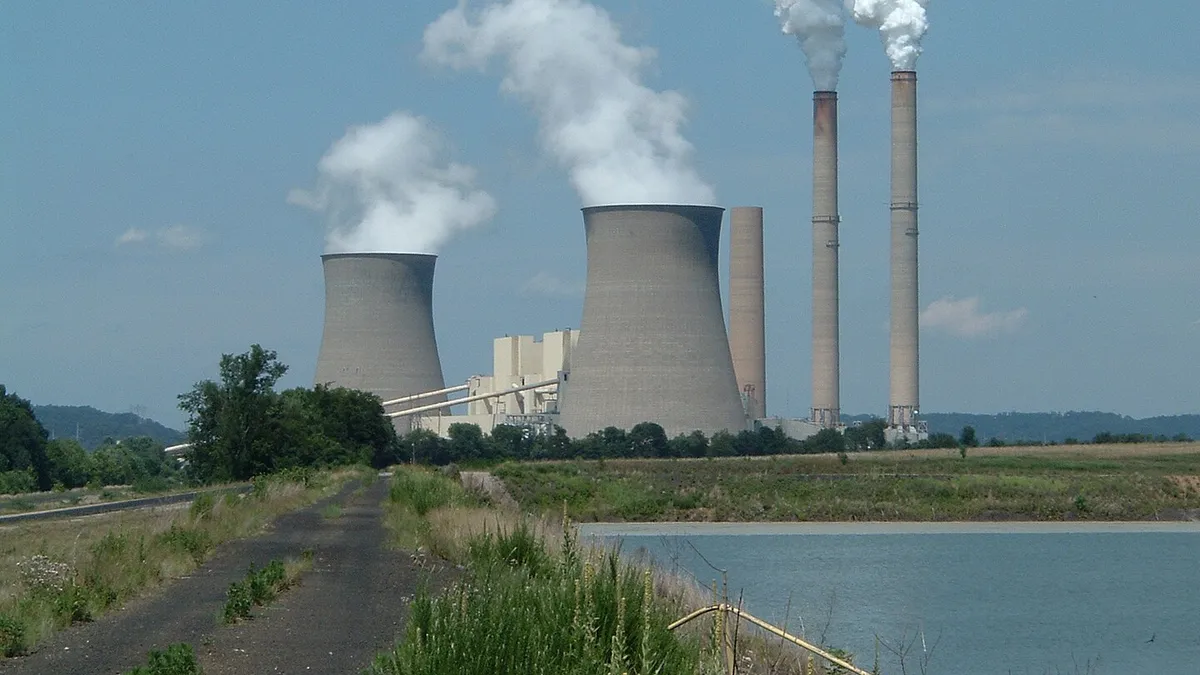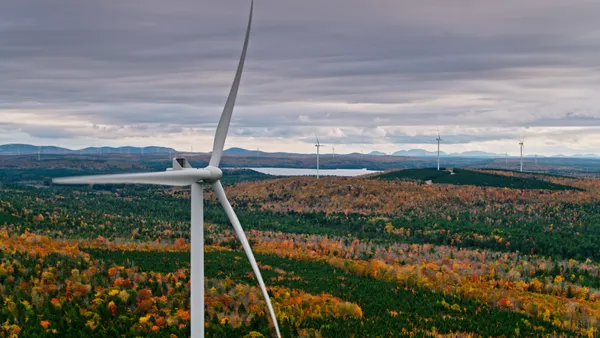Dive Brief:
- The U.S. Department of Energy wants to fund two large-scale pilots for "transformational coal technologies that improve coal-powered systems’ performance, efficiency, emission reduction, and cost of electricity."
- The $50 million funding opportunity is available through the agency's Office of Fossil Energy. A 20% minimum cost share on the total award is required.
- The funding opportunity was announced last week and aligns with the Trump Administration's promised support for the coal industry.
Dive Insight:
There are limits to how far the Trump Administration will go to support coal — the President declined to use emergency powers to block more coal power plants from closing, for instance — but DOE is still pursuing "clean" coal projects that could aid the industry.
The Trump administration has been working to aid the industry, true to his campaign commitments. He has pulled the United States out of the United Nations Paris climate accord and is working to roll back or replace numerous Obama-era protections that the coal industry blamed for their demise.
DOE's widely-watched grid study, which dropped last week, was also thought to be another tool aimed at saving the nation's financially-embattled coal fleet at the expense of renewable energy. However, the study, predominately written by career staffers, aligned with the broadly-held consensus that low natural gas prices drove coal and nuclear plants offline. In spite of the findings, the DOE appears to continue to promote technologies aimed at supporting the coal industry in particular.
The agency, in the funding announcement, said it "has supported a range of potentially transformational coal technologies aimed at enabling step-change improvements in coal-powered systems. Some of these technologies are now ready to proceed to the large-scale pilot stage of development."
Applicants for funding need to have already demonstrated technical success at a small-scale pilot stage, the agency said. Applications are due Oct. 19.
Funding will involve three phases, beginning with support for efforts to secure team commitments and schedule for design, construction, and operation. The second phase will include a front-end engineering design study, and completion of the National Environmental Policy Act process. Two projects will be selected for construction and operation of the large-scale pilot facilities.















